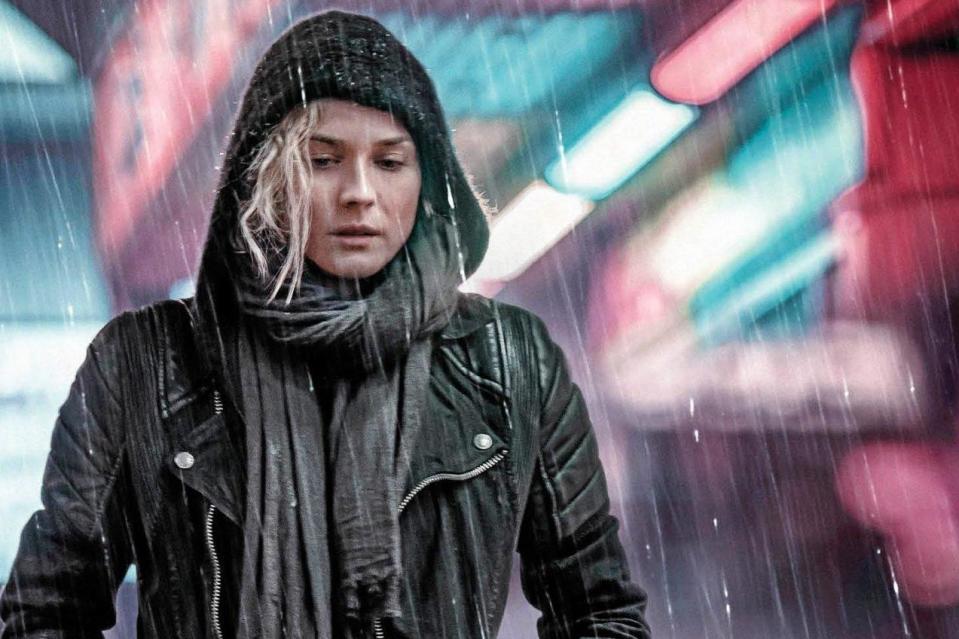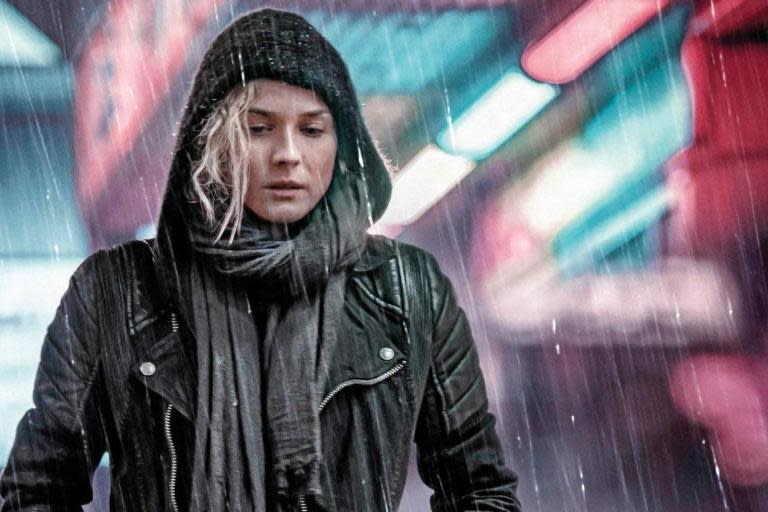In The Fade review: Diane Kruger gives a searing, brilliantly observed performance
Fatih Akin, 106 mins, starring: Diane Kruger, Denis Moschitto, Numan Acar, Samia Muriel Chancrin, Johannes Krisch, Ulrich Tukur
Fatih Akin’s intense and disturbing new feature In The Fade was inspired by a wave of neo-Nazi murders of immigrants carried out in Germany just over a decade ago. It has elements both of political thriller and of courtroom drama.
Ultimately, though, Akin is far less interested in probing into the psychology of the racist killers than in exploring the impact of their actions on a single woman. Diane Kruger gives a searing, brilliantly observed performance as Katja, the wife and mother whose 37-year-old Turkish husband and 6-year-old son die in a terrorist explosion.
It is hard to portray bereavement on screen without resorting to melodramatic cliché. British director Nicolas Roeg managed it in Don’t Look Now, depicting the moment the mother (played by Julie Christie) discovers her son has drowned in raw and terrifying fashion.
Akin achieves something similar here too. In an extraordinary scene, Katja learns (as the police put it crudely) that her loved ones are no longer people…they are “body parts.” She sinks to the ground at the news, utterly devastated. Her trauma and sense of loss are so extreme she can’t even control her limbs.
Much of the rest of the film concerns the investigation into who committed the murders, the trial, and Katja’s search for vengeance. As the State authorities try to make sense of the carnage, their prejudices become apparent. Detectives speculate that the immigrant husband must have been killed because of his drug dealing.
The defence lawyer (a supremely nasty and creepy performance from Johannes Krisch) attempts to destroy Katja’s reputation and to tar the name of her murdered husband, as if he is the one in the docks. Links are established between the neo-Nazis in Germany and the extreme right wing Golden Dawn movement in Greece.
The Turkish grandparents show their malevolent side too. “If you’d taken better care, my grandson would still be alive,” Katja is told by her mother-in-law.
There are Hitchcock-style set-pieces in which Katja stalks the killers or has to flee in her car to safety when it briefly looks as if she will share her family’s fate. These scenes are handled effectively enough but can’t help seeming like an afterthought.
Whether the police or the courts do their jobs properly is almost an irrelevance. It won’t bring Katja’s husband and son back. Nor is there any satisfactory explanation for the killers’ crime or their seeming lack of remorse.
Akin shoots the film in very fluid fashion, often using hand-held camera. (The film’s very showy overture, the build-up a prison wedding, takes place in a single shot.) It’s the simplest moments, though, which register the most strongly: Katja sleeping in her dead child’s bed or gazing at the trampoline on which he used to play or watching old holiday videos.
Kruger shows us the depth of the mother’s grief as well as her rage, incomprehension and refusal to be consoled.
In The Fade hits UK cinemas 22 June.

 Yahoo Movies
Yahoo Movies 

